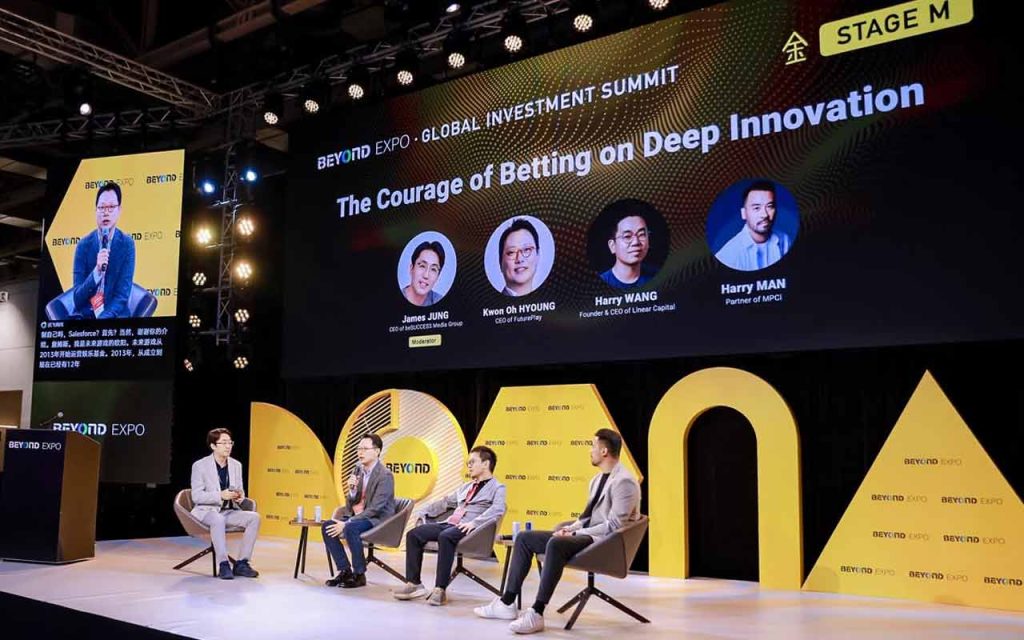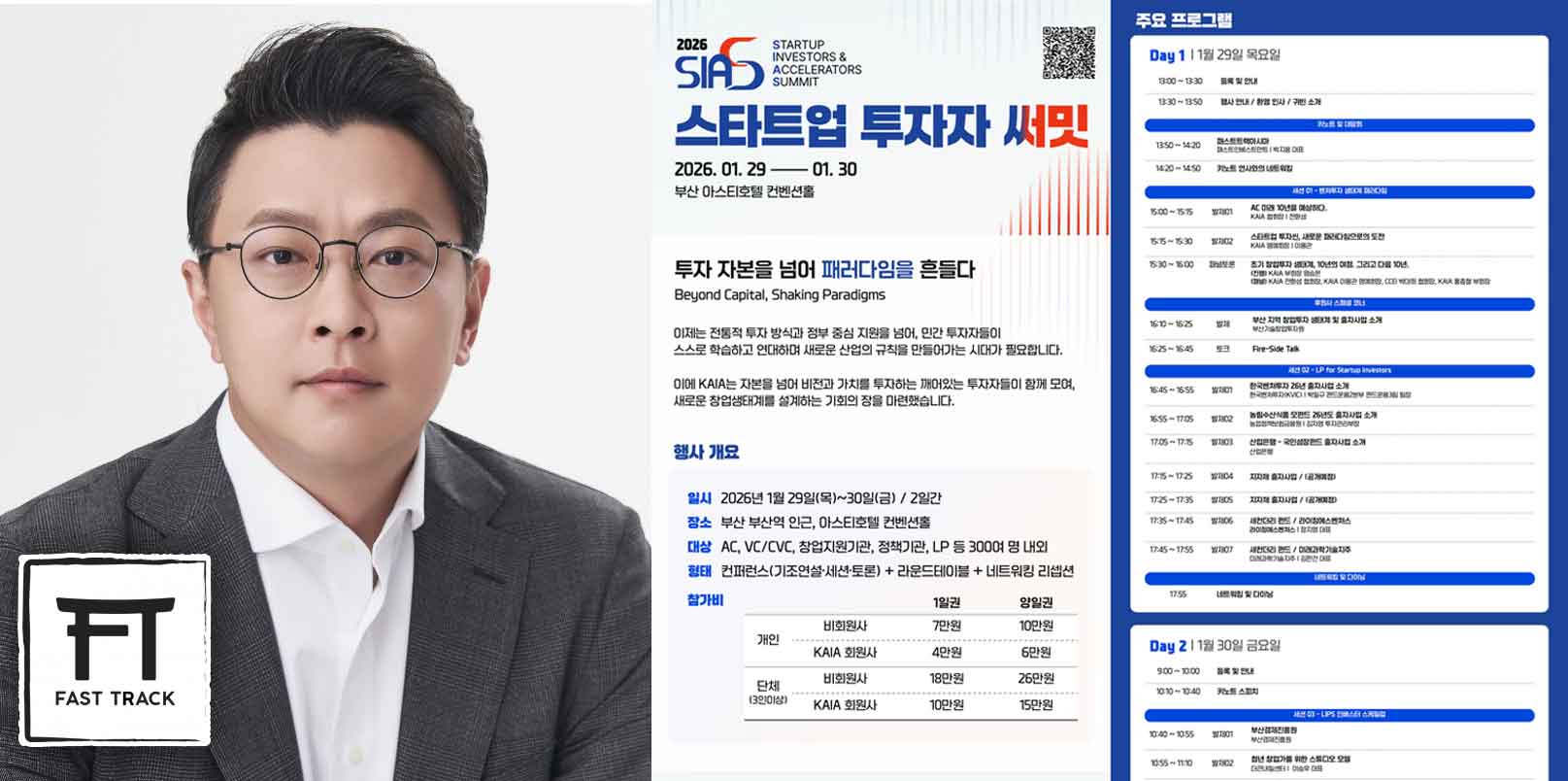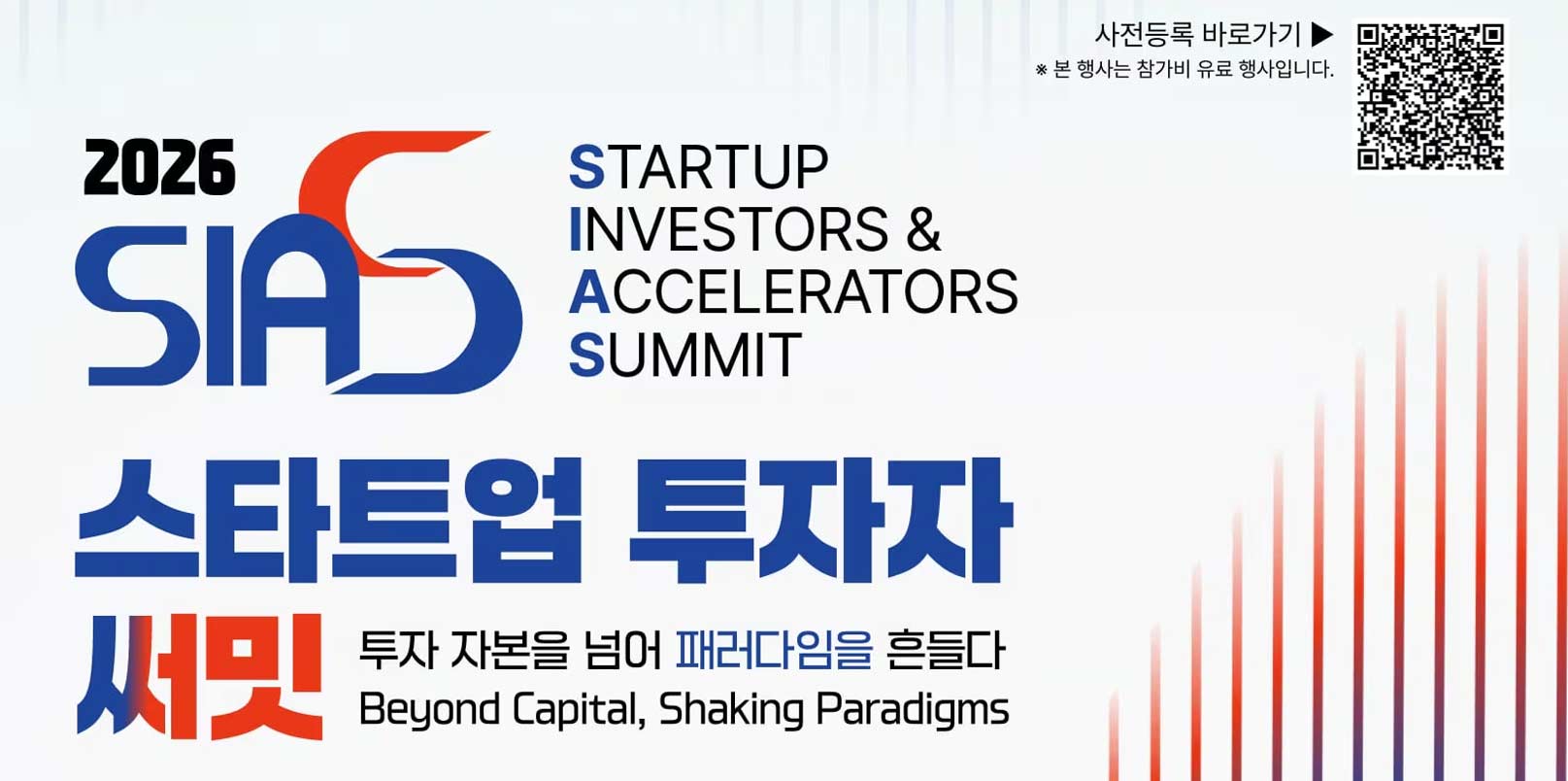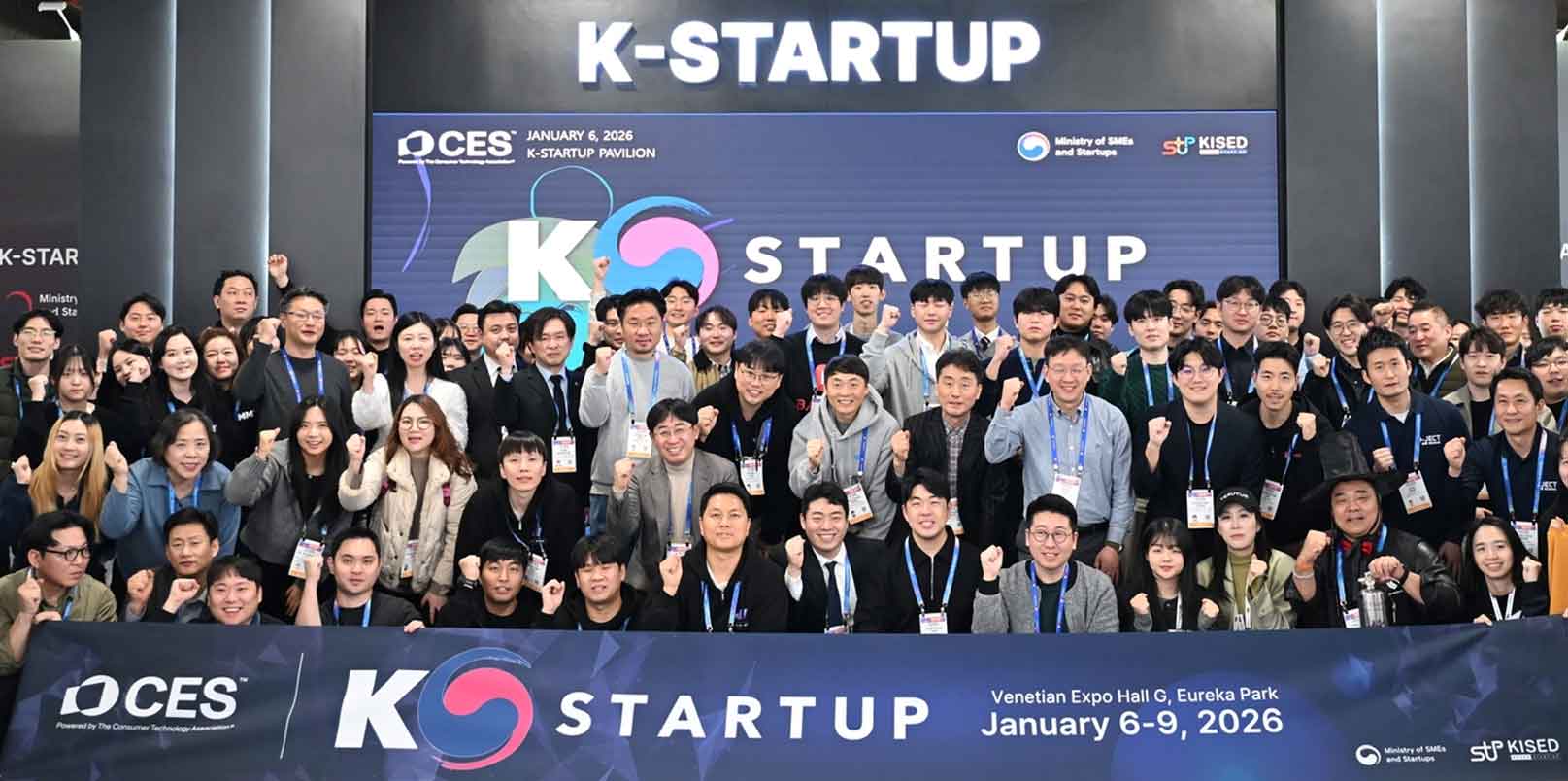Investing at the frontier of science carries high risk, uncertain outcomes, and long commercialization timelines. At the BEYOND Expo 2025 Global Investment Summit in Macao, this reality was at the center of discussion as Asia’s leading venture investors debated the future of deep technology. Moderated by James Jung, founder and CEO of beSUCCESS Media Group, the panel explored how courage, failure, and founder evolution define the path from breakthrough science to global markets.
Global Investment Summit at BEYOND Expo 2025: Betting on Deep Innovation
On May 23, 2025, the Global Investment Summit of BEYOND Expo 2025 hosted a session titled “The Courage of Betting on Deep Innovation.”
The panel brought together three seasoned investors: Oh Hyoung Kwon of FuturePlay, Harry Wang of Linear Capital, and Harry Man of MPC (formerly Matrix Partners China).
Guiding the conversation was James Jung, the founder and CEOof beSUCCESS Media Group, a leading platform connecting Korea’s startup ecosystem with global venture networks.
Together, the panel framed deep tech as a frontier defined by artificial intelligence, semiconductors, robotics, quantum computing, and new materials. These are areas where breakthroughs could reshape entire industries, but where the road from lab to market remains fraught with uncertainty.

Defining Deep Tech: Frontier Sectors and Global Investment Realities
Panelists began the BEYOND Expo 2025 session by outlining their respective firm’s philosophies and experience in backing deep tech startups.
- FuturePlay, active since 2013, has invested in 260+ companies, with a focus on AI, robotics, and healthcare solutions tailored to Korea’s aging demographics.
- Linear Capital, with $2 billion under management, started with AI/data startups and has since expanded into frontier biology and materials discovery.
- MPC, with $10 billion AUM, historically a consumer internet player, has transitioned into deep tech, now investing at post-technical inflection points.
While definitions varied, a shared view emerged: deep tech is anchored in science-driven, high-barrier innovation. As Harry Man noted,
“Deep tech is deeper than AI… it’s about fundamental physics and chemistry.”
FuturePlay’s Oh Young Kwon cited Korean healthtech firms VUNO and Neurophet as examples, while Harry Wang highlighted Horizon Robotics, an AI chipmaker Linear Capital backed early that went public after 11 years with a $15 billion valuation.
Now, for Harry Wang, success means crossing three chasms,
“From technology to product, product to commercialization, and commercialization to scale.”
Deep Tech Founder Mindsets: Korea, China, and Global Lessons
beSUCCESS Media Group CEO James Jung then navigated the BEYOND Expo 2025 conversation toward regional dynamics: how do Korean and Chinese founders approach deep tech differently?
Oh Young Kwon observed that Korean founders operate in a limited domestic market, which compels them to adopt a global-first mindset. This mentality, he noted, is rooted in Korea’s entrepreneurial legacy, shaped by both startups and major corporations such as Samsung and Hyundai.
“Korean founders know Korea isn’t big enough to build the next decacorn. Their mentality is built to expand globally.”
Meanwhile, Harry Wang contrasted this with China’s vast unified market, which fosters what he called a “technical romance” — bold ambitions to build lasting legacies. He then cited DJI and Deepseek as examples of visionary founders, describing Chinese entrepreneurs as driven by ideals where “the stars are their destination and the ocean their battlefield.”
Both models carry strengths and risks, but the panel agreed that adaptability and openness to global collaboration will shape long-term success.
Managing Risk and Founder Evolution in Deep Tech Investment
Now, if deep tech is inherently high-risk, how do investors decide which bets to make?
Harry Man stated that for MPC, the focus is later-stage entry, after companies have proven their science and started product development.
“The first five years are the hardest. But if founders can evolve beyond their technical roots, they can build enterprises.”
By contrast, FuturePlay and Linear Capital thrive in the earliest stages. For them, technical mastery is non-negotiable, but management skills can come later. During the discussion, Harry Wang said,
“We don’t care if they lack management skills. What matters is the willingness to learn and transform”
Oh Hyoung Kwon agreed, emphasizing that while early-stage deep tech founders may not be perfect, they must demonstrate world-class technical ability and strong talent-scouting skills.
“Founders must be the best in their field. Other issues — management, PR, HR — can be supported by investors.”
Lastly, panelists at the BEYOND Expo 2025 session agreed on one key point: a founder’s personal evolution sets the ceiling for a company’s growth. As Harry Man summarized the ideas,
“If there’s one single thing we look at, it’s the founder’s capability to evolve and learn.”
Lessons from Failure
Additionally, no deep-tech conversation would be complete without discussing failure. When James Jung turned the discussion to the challenges and failed experiences, Oh Hyoung Kwon was candid in his statements to the beSUCCESS Media Group CEO,
“For early investors, failure is almost the norm. Our success rate is about 50%. But the common mistakes we see in the founders come from managing people: hiring wrong person, not willing to evolve, and not really understanding their capability. Even more so when they raise tons of money.”
Similarly, Linear Capital’s Harry Wang described failure as a “common friend”. He revealed that while eight out of ten early-stage bets may fail, the rare successes often pay for the entire fund. He then added that the real risk lies at the extremes: founders who are either too technical or too visionary, without the balance needed to build a sustainable business.
That is why Harry Wang also emphasized the importance of nuanced judgment, developed through experience and shaped by past mistakes,
“The last rule is data-driven emotional decision. That’s the part that’s so delicate and hard to express. Because in the end, a lot of mistakes we had in the past eventually get us to where we are today.”
Yet, other perspectives of failures in deep-tech investment came from MPC’s Harry Man, who highlighted the cost of “misses,” referring to promising companies that slip by because investors choose not to engage early enough.
“There are people passing by in front of us and you choose not to invest in them for all the right reason and then they turn out to be the Mark Zuckerberg.”
Harry Man then reflected on the turnaround of EV maker Xpeng, which recovered from a steep valuation drop. He credited the company’s resilience to its founder, emphasizing,
“The CEO is what brings the company to the future.”
Why This Matters for Korea’s Startup Ecosystem
This session from the BEYOND Expo 2025 – Global Investment Summit carried special weight for Korea’s role in global innovation.
With James Jung at the helm, beSUCCESS Media Group reinforced its role as a bridge between Korean startups and the international venture community. This function is especially critical in South Korea, where the domestic market is limited, and therefore global scale not just a goal, but a structural necessity.
Sessions like this underscore why Korean deep tech ventures must be designed with global ambition from the start.
In addition, the discussion also brings clear message for deep tech founders: technical excellence must be matched by leadership growth, global mindset, and the resilience to navigate long timelines. Building world-class companies means evolving beyond technical skills and embracing the complexity of global scale.
As for investors, the discipline lies in patience — not rushing returns but recognizing long-term potential, even when it’s not yet obvious. Because in deep tech, the real reward comes to those who stay through the uncertain middle — backing founders who are still becoming the leaders they need to be.
This alignment — of vision, risk appetite, and ecosystem support — will determine whether South Korea produces not just breakthrough technologies, but enduring global companies.
Deep Tech Demands Patience, Vision — and Courage
Ultimately, the BEYOND Expo 2025 panel on Deep Tech Innovation unveiled one undeniable fact: deep tech breakthroughs come with equally daunting timelines and risks. It means that success in this field depends on investor patience, founder adaptability, and the courage to support ideas that may take years — or even decades — to fully materialize.
And today, South Korea stands at a pivotal moment. Platforms like Pangyo Techno Valley, KAIST, and the TIPS program are already building a new generation of frontier startups — not only advancing core technologies but also strengthening global competitiveness.
Therefore, by framing the session around “deep innovation,” beSUCCESS Media Group helped position Korea’s ecosystem at the center of global investment conversations — connecting local potential with the international networks that will shape the next wave of technological transformation.
Watch the full panel discussion in the video here.
🤝 Looking to connect with verified Korean companies building globally?
Explore curated company profiles and request direct introductions through beSUCCESS Connect.
– Stay Ahead in Korea’s Startup Scene –
Get real-time insights, funding updates, and policy shifts shaping Korea’s innovation ecosystem.
➡️ Follow KoreaTechDesk on LinkedIn, X (Twitter), Threads, Bluesky, Telegram, Facebook, and WhatsApp Channel.






